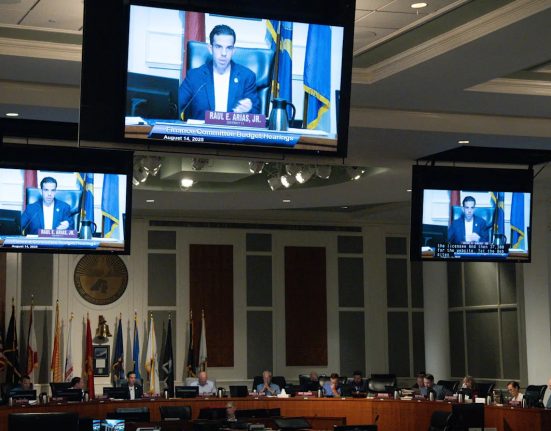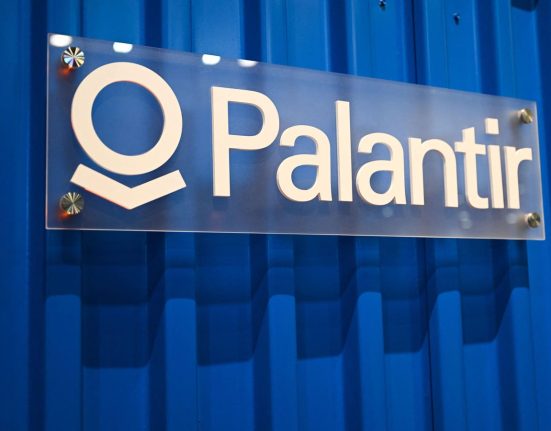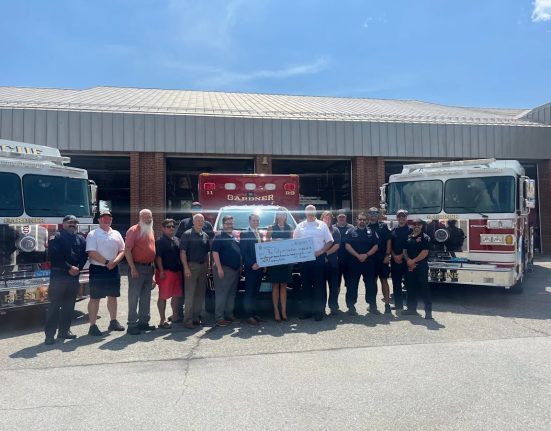In my experience, the best commercial lenders will offer flexible qualification requirements, favorable rates and terms, and financing for various property types — such as apartments, multifamily homes, retail and office spaces, and restaurants.
That said, here are my top loans for commercial real estate:
Quick comparison of the best commercial real estate lenders
Lendio: Best overall for multiple loan options

I chose Lendio as the best overall pick due to its wide range of loan types and flexibility in qualifications. Since it’s a broker with over 75 partnering lenders in its network, it allows you to apply for financing with a single application and be matched with multiple providers who can meet your needs. With multiple loan types and lenders presented at once, shopping for a CRE loan is easy.
It’s important to note that you might not know the exact qualifications necessary until you apply, as each lender will have varying criteria. That said, Lendio is still worthwhile and can save you time and money in the long run, as its general criteria are often flexible and can be applicable to a wide variety of real estate investors.
The application process is simple and can be completed online via Lendio’s website. It is also free and has no impact on your credit score. I recommend speaking with one of its representatives if you have any questions and working with them to review your loan options, whether you’re a new or seasoned investor.
How to qualify
- Credit score: 650
- Time in business: 2 years
- Annual revenue: Varies
- DSCR
: 1.25x recommended
Rates & terms
- Starting interest rate: 4.5%
- Loan amount: $250,000 to $5 million
- Loan term: 10 to 25 years
- Maximum LTV
ratio: 90% - Estimated closing costs & fees: Varies
- Time to fund: 4 to 8 weeks
1West: Best for borrowers with low credit scores
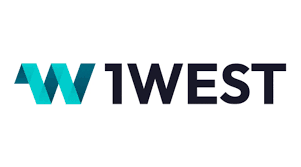
1West is my top recommendation for borrowers with bad credit, as it has the lowest credit score requirement of this guide. It’s a loan broker, like Lendio, that can match you with a wide variety of lenders willing to work with your specific investment needs and qualifications. With a lending network of over 50 providers, it can pair you with various financing solutions that can help you buy, renovate, or expand new or existing commercial properties across all 50 states.
A unique feature of 1West is its application process. It utilizes a tool named ABLE (Automated Business Lending Engine) to help process your application quickly without the need to speak to a lender. Essentially, this can streamline the lending process altogether.
Offices, retail spaces, hotels, and apartments are all types of properties it commonly helps finance. Business entities such as partnerships, developers, trusts, corporations, and real estate investment trusts (REITs) are all applicable as borrowers. Additionally, you’ll have the option to get funding with no minimum gross sale requirement, and loans can be issued in either a 1st or 2nd lien position. Last but not least, if you’re looking to have a low monthly payment, interest-only options are available.
To learn more or to submit a loan application, visit the 1West website.
How to qualify
- Credit score: 500
- Time in business: 2 years
- Annual revenue: Not stated
- DSCR: 1.20x recommended
Rates & terms
- Starting interest rate: 6%
- Loan amount: $100,000 to $20 million
- Loan term: 6 to 60 months
- Maximum LTV ratio: Varies
- Estimated closing costs & fees: Varies
- Time to fund: 2 to 3 weeks
Kiavi: Best for fix-and-flip projects
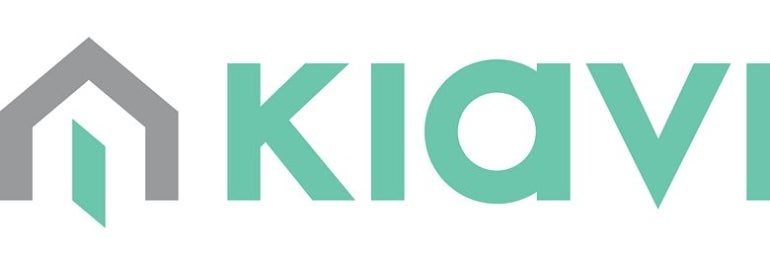
I recommend Kiavi if you’re a fix-and-flip real estate investor looking for quick access to financing. I chose it for its highly competitive rates, quick closing timeline, and flexible qualification requirements. Its fix-and-flip program allows you to purchase or refinance existing properties and can enable you to compete with cash buyers based on its quick funding speeds.
Eligible properties must be non-owner occupied and be classified as a single-family residence, manufactured home, 2-4 unit dwelling, condominium, or Planned Unit Development (PUD). If you’re an experienced investor, you may also secure better rates and terms, although new investors are also eligible and can be considered for its variety of loan offerings.
Kiavi keeps the application and approval process simple in that it requires no appraisal or income verification. To learn more, speak with an advisor, or submit an application, visit the Kiavi website. You can find out if you pre-qualify without impacting your credit score, and there’s no application fee or obligation to accept an offer.
How to qualify
- Credit score: 660
- Time in business: None
- Annual revenue: None
Rates & terms
- Starting interest rate: 7.75%
- Loan amount: $100,000 to $3 million
- Loan term: 12, 18, 24 months
- Maximum LTV ratio: 95% purchase price, 80% ARV
- Estimated closing costs & fees: Varies
- Time to fund: As fast as 7 days
RCN Capital: Best for long repayment terms & low rates

I chose RCN Capital as a top commercial lender since it offers some of the lowest starting rates and longest repayment terms in this roundup. It has a wide variety of loan programs for numerous business uses and flexible qualifications for investors of all types of experience. It’s worth noting that loans must be backed by non-owner-occupied and commercial properties and be issued to a business entity.
Its loan programs include fix-and-flip loans, long-term rental loans, multifamily loans, new construction loans, and investor rental portfolio loans. Certain loan programs might also be applicable for real estate purchases, refinances, or cash-out refinances. It’s important to keep in mind that rates, terms, and qualifications will vary per loan program, so before you submit an application, ensure you know which loan program best suits your investment needs.
During the approval process, you typically won’t have to pay any upfront fees other than minor exceptions, such as third-party fees for items like appraisals and environmental studies. Otherwise, it’s a pretty simple application process, and you can contact one of its representatives should you have any questions.
Visit the RCN Capital website to complete an online application.
How to qualify
- Credit score: 650 to 680, depending on loan program
- Time in business: None
- Annual revenue: Varies
- DSCR: As low as 1.05×, but may vary
Rates & terms
- Starting interest rate: 6% to 10.99%
- Loan amount: $50,000 to $20 million
- Loan term: Up to 30 years
- Maximum LTV ratio: 80% to 90%
- Estimated closing costs & fees: 1% to 4% of loan amount
- Time to fund: 1 to 3 weeks
Lima One Capital: Best for distressed properties
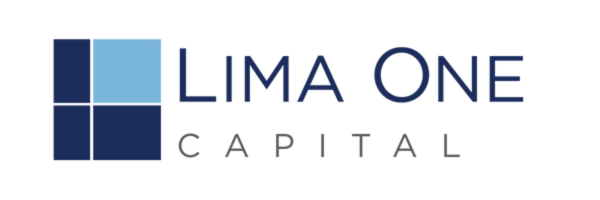
Lima One Capital offers a variety of investment property loans, which can provide you with the opportunity to finance distressed properties that may have low cash flow, low occupancy, etc. I chose it because borrowers who need flexible financing can turn to this provider for a variety of options.
While competitors like RCN Capital also provide multifamily property financing, Lima One Capital distinguishes itself through its various lending options. Among its multifamily offerings are value-add bridge loans, which are designed for properties requiring renovations or rent adjustments to improve profitability, and stabilized bridge loans, which are suited for ready-to-lease properties needing additional operational history or tenant stabilization before securing permanent financing.
Depending on the loan you select, you can choose between amortized or interest-only payments. Lima One Capital also provides nonrecourse loans, allowing you to shield personal assets in case of default. In addition to multifamily lending, it extends financing for rental properties, new builds, and fix-and-flip projects. For more details or to apply, visit the Lima One Capital website.
How to qualify
- Credit score: Varies based on loan program
- Time in business: None
- Annual revenue: Varies based on loan program
- DSCR: As low as 1.25× recommended
Rates & terms
- Starting interest rate: 6.5%, but varies per loan program
- Loan amount: Up to $10 million
- Loan term: Varies
- Maximum LTV ratio: 80%
- Estimated closing costs & fees: Varies
- Time to fund: 1 to 3 weeks
U.S. Bank: Best for SBA & CRE loan options

U.S. Bank
is a seasoned CRE lender with ample experience for borrowers looking to invest in real estate. Not only does it offer CRE loans, but it’s a Small Business Administration (SBA) Preferred Lender, so its programs can offer some of the most favorable rates and terms available. For these reasons, it makes the list as my top pick if you’re looking to get a government-backed CRE loan.
That said, U.S. Bank can have stricter qualification requirements than other providers in this roundup. However, if you’re a qualified borrower, you can get access to competitive starting rates. Note that most borrowers will need to call, submit an application, or schedule an appointment to get more details about available rates and qualification requirements, as they are not listed on the provider’s website.
In speaking to representatives, they’ve stated that some programs have flexibility when it comes to underwriting qualifications — so even if you’re unsure you meet all the criteria, it can still be worth it to submit an application. Should you choose to apply, you can schedule an appointment via the U.S. Bank website or request a call to discuss next steps.
How to qualify
- Credit score: 700 recommended
- Time in business: 2 years recommended
- Annual revenue: Not stated
- DSCR: 1.25x recommended
Rates & terms
- Starting interest rate: Estimated 6.99%
- Loan amount:
- SBA 504 loans: $12.375 million
- CRE loans: $10 million
- SBA 7(a) loans: $5 million
- Loan term:
- CRE: 5, 10, 15 years options; up to 25-year amortization
- SBA: 25 years
- Maximum LTV ratio: 80%, 90% (SBA loan)
- Estimated closing costs & fees: Varies
- Time to fund: 30 to 90 days
SBG Funding: Best for short-term financing

SBG Funding is one of my top choices because it offers SBA 7(a) loans that are ideal for short-term financing. It’s also a standout provider in that it offers up to $10 million in financing, which is double the standard $5 million offered with this loan program, as seen with U.S. Bank. If you’re looking for a short-term government-backed loan with high funding amounts, this provider is for you.
What’s more, funds from this loan program can generally be used for any business purpose, including commercial real estate. With it, you can acquire property, renovate an existing one, or refinance existing CRE debts. If flexibility is a key element to your financing needs, this program is worth looking into. That said, while qualification requirements are variable, it’s important that you can demonstrate strong cash flow and creditworthiness.
To apply, visit the SBG Funding website and fill out the simple application. It should only take a few minutes, and there are representatives available should you need any assistance.
How to qualify
- Credit score: 650
- Time in business: 2 years recommended
- Annual revenue: Not stated
- DSCR: 1.25× recommended
Rates & terms
- Starting interest rate: Prime + 2.5%
- Loan amount: Up to $10 million
- Loan term: 2 to 10 years
- Maximum LTV ratio: 90%
- Estimated closing costs & fees: Not stated
- Time to fund: Up to 90 days
J.P. Morgan Chase: Best for experienced real estate investors
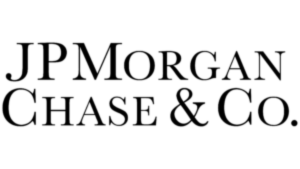
J.P. Morgan Chase, a knowledgeable loan provider, is great for seasoned investors looking for high funding amounts and an experienced commercial lending team. While you’ll need ample strong qualifications, it offers a wide variety of CRE lending programs that can provide you with financing solutions specific to your investment needs.
Its CRE financing options include multifamily lending for apartment buildings, commercial mortgage loans for industrial, office, retail, and mixed-use properties, and CRE financing for small businesses, which offers SBA loans and other financing options for commercial buildings. J.P. Morgan Chase can also be a good alternative for SBA loans if U.S. Bank or SBG Funding aren’t quite the right fit.
It’s worth noting that this provider’s financial offerings may be limited and only available in some major US markets. I recommend speaking with one of its representatives to determine your eligibility and which lending programs best meet your investment needs. From there, you can proceed with the application process as you see fit.
How to qualify
- Credit score: Not stated
- Time in business: 2 years recommended
- Annual revenue: Not stated
- DSCR: 1.25x recommended
Rates & terms
- Starting interest rate: Estimated 7%+
- Loan amount: Up to $25 million+
- Loan term: Up to 25 years
- Maximum LTV ratio: 90%
- Estimated closing costs & fees: Varies
- Time to fund: 30 to 45 days
My methodology
To choose the best commercial real estate loans, I focused on reviewing various lenders against a set of criteria that would be most appropriate for a real estate investor seeking financing. My background in CRE allowed me to determine key features of each lender and analyze which scenarios they may be the most useful for. The analysis in which I ranked these providers are detailed below.
- Interest rates and loan terms: I looked into how favorable and adaptable the loan conditions were, comparing interest rates and repayment options to identify the best value for investors.
- Speed of loan processing and funding: I measured how efficiently each lender handles applications and delivers funds, which is an essential consideration for deals with tight deadlines.
- Lender reputation: I researched public reviews to determine how trustworthy and client-focused each lender is in practice.
- Transparency: I assessed the clarity and completeness of information provided by lenders, particularly around fees and contract terms, to avoid surprises down the line.
- Target audience suitability: I investigated which investor segments each lender is best equipped to support based on financing options and experience in specific niches of real estate.
How to choose a commercial real estate loan provider
You’ll want to keep a few factors in mind when choosing the best commercial real estate loan provider, especially if you’re keeping your budget and business needs at the forefront of your priorities.
When shopping around for a lender, I recommend taking the time to do the following:
✅ Consider your investment type. Tailor your financing choice to the specifics of your real estate venture. Whether you’re acquiring a multifamily property, needing temporary funding via a bridge loan, or exploring other commercial loan types, select a loan type that aligns with your investment goals and property needs.
✅ Review lender qualification requirements. Each lender sets its own approval criteria. Common considerations include your credit score, time in business, and revenue performance. Reviewing these requirements ahead of time can help you target lenders where you’re more likely to qualify.
✅ Compare loan costs and terms. Take the time to assess different lenders’ offerings, focusing on interest rates, loan terms, and total cost of borrowing. Consider how the loan structure fits your financial situation, including required down payments and repayment schedules, to ensure long-term affordability.
Tips to get the best rates & terms
Getting the best rates and terms sometimes means taking a few extra steps to ensure your business is reflected favorably by the lender.
✅ Prepare a business plan. By preparing a business plan, you’re demonstrating to the lender your plans for your investment. That might help give the lender a snapshot of your plans for the investment long-term.
✅ Consider market conditions. You might want to try to time your investment during favorable market conditions. Depending on your preferences for a fixed or variable interest rate, you should stay up to date on current market conditions to ensure you get the best deal possible.
✅ Negotiate terms. It’s worth working with the lender and negotiating terms and conditions where you can. This can include items such as fixed or variable rates, associated loan fees, and repayment terms.
✅ Offer a down payment and collateral. You might be offered better terms if you offer a higher down payment or provide ample collateral. If you’re in a position to offer such, consider if it might benefit you by saving money long-term.
Frequently asked questions (FAQs)
What types of commercial real estate loans are available?
Depending on your investment needs, there are a wide variety of CRE loans that might be applicable. Common loan types include CRE mortgages, SBA loans, bridge loans, and hard money loans.
What are the current interest rates for commercial real estate loans?
Generally speaking, expect to see current rates anywhere from 6% to 20%. Note that interest rates can vary based on the lender, loan type, investment needs, and market conditions for a commercial bank loan.
What credit score is needed to qualify for a commercial real estate loan?
Credit score requirements vary per lender and loan type. While you should aim to have a high credit score for the best odds of approval, generally, 650 and above is a good starting point that will allow you to be considered by various lenders.
How much down payment is required for a commercial real estate loan?
A typical down payment for a CRE loan can range anywhere from 0% to 20%. Of course, this can vary depending on the lender’s requirements or your own financial circumstances.
What is the typical loan term for commercial real estate financing?
Loan terms for CRE financing vary based on the type of loan you seek. For a general mortgage loan, you can usually expect anywhere from 10 to 25 years, and for short-term financing like bridge or hard money loans, it may be as little as 2 years.




